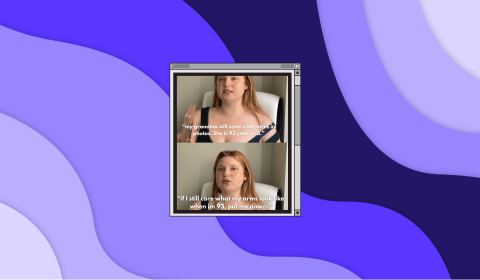On our Gen Z insights column, we discuss a recent study by Google and take a look at the rental crisis, brat summer, Gen Z-led protests in Kenya and more.
Do Gen Zers care about the truth?
A newly released study by some of the folks at Google found that Gen Zers spend most of their time online unconcerned with the truth, because they are simply looking to pass the time.
The researchers found that the participants adopt different mindsets and emotional states depending on what they’re doing online. As a generation we mostly go online just to avoid boredom, and the mindset we do this with is one of apathy.
We can apply critical thinking skills to assess the validity of what we read and see, but for the most part we don’t care enough to.
The study also found that Gen Zers are prone to skip an article if it’s too long and jump straight to the comments instead. We don’t want anything that requires us to think too hard, nor anything that’ll upset us emotionally.
And when we do care about acquiring knowledge, it’s generally with the aim of learning what we need to know to remain cool and up-to-date with our social groups.
@antonmijac questioning everything rn
Overall the study doesn’t paint the rosiest picture of our generation. It’s worth remembering that it was a qualitative study involving long interviews with a few participants, rather than a broader piece of research involving more people, but nonetheless there is still something worrying in the findings.
In 1891 Oscar Wilde, ever the modernist, wrote that boredom is ‘the one sin for which there is no forgiveness.’ As a generation we seem to embody this sentiment.
It’s the fear of boredom that drives us online, not the search for truth, and so our attitude is one of unconcern rather than scrutiny.
For Gen Z, boredom is the cardinal sin. We’re a TikTok generation, the study suggests, and truth may be the collateral damage.
So . . . how concerned should we be?
Before social media, you’d likely get your news from a newspaper and then get your social fix through seeing friends in person. You might buy a magazine for something that’s more in-between the two, but even then the lines were still clear.
For Gen Zers, social media means that the lines are wayyyy more blurred. We don’t really see much difference between going online for news versus for social interaction. You can find both on Instagram or TikTok, after all.
The internet has created this ever-fluctuating amalgamation where everything is immediate and nothing is written in stone.
Even worse, although we generally assume that our algorithms are determined by our interests and values, it’s often the other way around. This matters less when the content is all funny videos and dance trends, but when the content is political or informational there’s obviously a much larger problem.
i always felt like older generations were more prone to being taken advantage of by false/satire content on the internet but recently I notice gen z being like “how is this real????” and it’s an onion article about a baby being launched out of a trebuchet
— eric curtin (@dubstep4dads) August 18, 2022




















